Contents
Guide
Pages

Need the audio?
You can access the audio for this ebook for free by downloading it to the Teach Yourself Library app or streaming it on library.teachyourself.com
Go to the Teach Yourself Library website now
 @TYOpenRoad
@TYOpenRoad
 /TYOpenRoad
/TYOpenRoad
 /TYOpenRoad
/TYOpenRoad
Acknowledgements
Clare Hunter knows this book as well as I do, despite never having seen it at the point that Im typing this. I had first been approached about the possibility of publishing a follow-up to Complete Esperanto immediately prior to a visit to Powis Castle in Wales, where I batted some ideas about with Clare over the weekend. I drew up the detailed breakdown of the ten units whilst we were on holiday in Cyprus, with Clare assisting me as the thoughts took greater shape during an excursion to Paphos Archaeological Park, before heading back to our apartment and typing them up. I wrote the book whilst we both shared our home office during the national lockdown in the UK of 2020, and so our afternoon walks often involved discussions about what I was working on. Clare has been an invaluable sounding board during the writing process, helping me to produce something better than it might otherwise have been.
I am particularly indebted to Jorge Rafael Nogueras and Lee Miller, who received drafts of the units, promptly returning helpful comments. I put them under quite some strain with the rapid turnover of new units, and they didnt complain once, despite the short notice and lack of respite, and they have spared my blushes on several occasions, as has Edmund Grimley Evans, who proofread extremely diligently under considerable time pressure. Not for the first time, his eye for detail and depth of knowledge astounded me, and this book is all the better for his assistance. Viv ODunne, my long-time colleague at the Esperanto Association of Britain, has been wonderfully supportive, particularly through her mindfulness in keeping distractions away from me whilst I was working on the book. Bertilo Wennergren has been revolutionary in making Esperanto grammar accessible to ordinary people, and his influence will be clear within these pages. Maurizio Giacometto, Stela Besenyei-Merger, Marteno Mini and Clare Hunter did sterling work in the studio, lending their voices to this project and bringing the characters to life in very challenging circumstances owing to COVID-19 restrictions.
Without Complete Esperanto, there wouldnt be an Enjoy Esperanto, and so I owe an expression of thanks to Judith Meyer, who co-authored the previous book with me. Im proud of what we achieved together. There wouldnt have been a Complete Esperanto in the first place without Emma Green, Senior Commissioning Editor, Languages at John Murray Learning. I owe Emma a personal debt of gratitude for commissioning Complete Esperanto in 2016, and for then commissioning Enjoy Esperanto.
Finally, I would like to thank the individuals, publishers, and associations whose contributions are spread throughout the book, Eric Zuarino for his helpful and supportive editorship, and Przemysaw Wierzbowski, who provided the artwork for .
Tim Owen
Dedication
My friend Ian Carter, the voice of Complete Esperanto, was always going to be my first choice to be in the studio for Enjoy Esperanto, until illness cruelly, and unexpectedly quickly, turned his and his familys lives upside-down. He once told me over a pint of his favourite Plum Porter of his ambition just to do something for Esperanto, a hobby he discovered in 1966 and resumed in later life, having returned to the UK after living in Saudi Arabia, Thailand, and Burma. Hes going to be getting a copy of Enjoy Esperanto with this page marked, so that every time curiosity leads him to open it, hell see that although hes now sadly forgetting much, he hasnt been forgotten. And I hope that everybody who enjoyed that wonderful voice with the laconic delivery on Complete Esperanto will raise a metaphorical glass of Plum Porter to Ian to acknowledge that he certainly did do something for Esperanto: a very impressive something, for which I will always be grateful, as I am for his friendship since we met in 2014.
About the author
Tim Owen came across Esperanto in a childrens encyclopedia one Saturday morning and thought it sounded like a really good idea. Decades later, he has travelled to several countries using the language, and is Director of the Esperanto Association of Britain.
He is the editor of La Brita Esperantisto and co-author of Complete Esperanto, and has been described as one of the premier scholars and writers in the world of Esperanto by Lee Miller, the Director of the Esperanto Academys Section for Evaluation of Learning Materials. All these years after leafing through a childrens encyclopedia, he still thinks Esperanto sounds like a really good idea.
Introduction
Welcome to Enjoy Esperanto!
This course has been written specifically for the learner who:
- has already completed a beginners course
- wishes to resume studying Esperanto after some interruption
- has intermediate proficiency and wants to attain an advanced standard in Esperanto
- prefers a self-study course or learns one-on-one with a tutor
- seeks to supplement classroom instruction with more guided practice
- needs to revise in view of sitting an advanced-level examination.
If one or more of these descriptions applies to you, you will find Enjoy Esperanto is consistent with your objectives. The course is designed to help you take your Esperanto to a higher level. The first few units are aimed at consolidating and building on your previous knowledge. The course then moves on to more complex language and issues in the later units. It is here that you will also be introduced to the more advanced points of Esperanto grammar, such as transitivity, participles, and the use of the reflexive pronoun in complex sentences. Additionally, much of the supporting audio material is based on real-life interactions between Esperanto speakers, and the storyline-based conversations are designed to be realistic scenarios. The course covers the four basic language skills listening and speaking, reading and writing and presents contemporary and historical Esperanto culture, including excerpts from books and magazines, podcasts and poetry. It will lead you to develop your vocabulary and give you opportunities to express your opinion on a number of everyday topics.
Develop your skills
The language introduced in this course is based on realistic situations, following a young Esperantist who spends a year in Slovakia as part of the European Voluntary Scheme, as other Esperantists have before her. Through her interactions with others, you will discuss travel, sport, the environment, social issues, the world of work, and meet both historical and contemporary Esperantists.

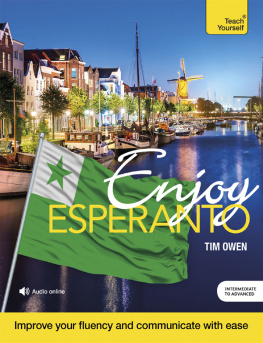
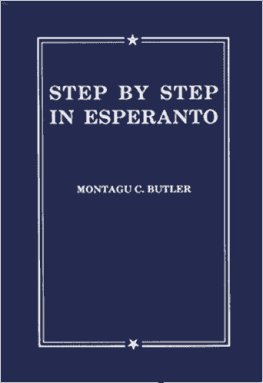



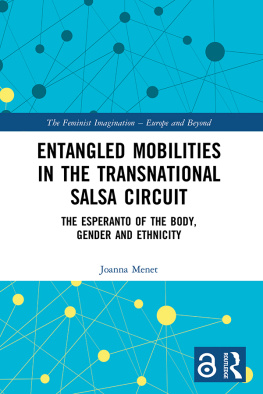
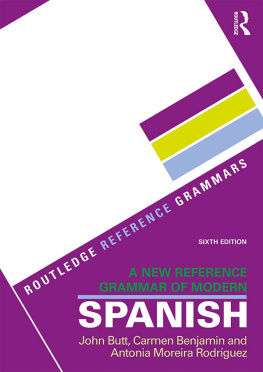
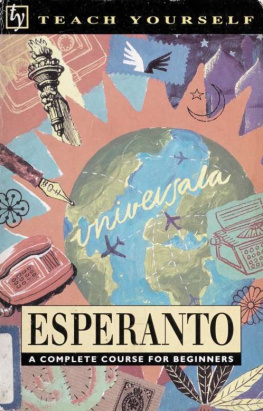

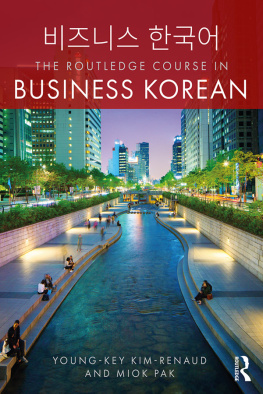
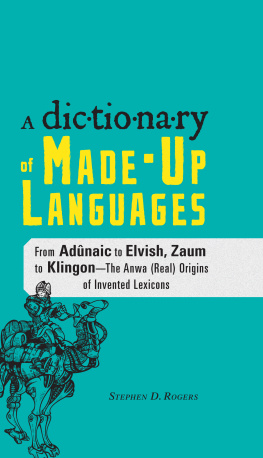
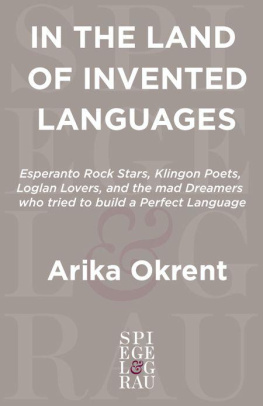


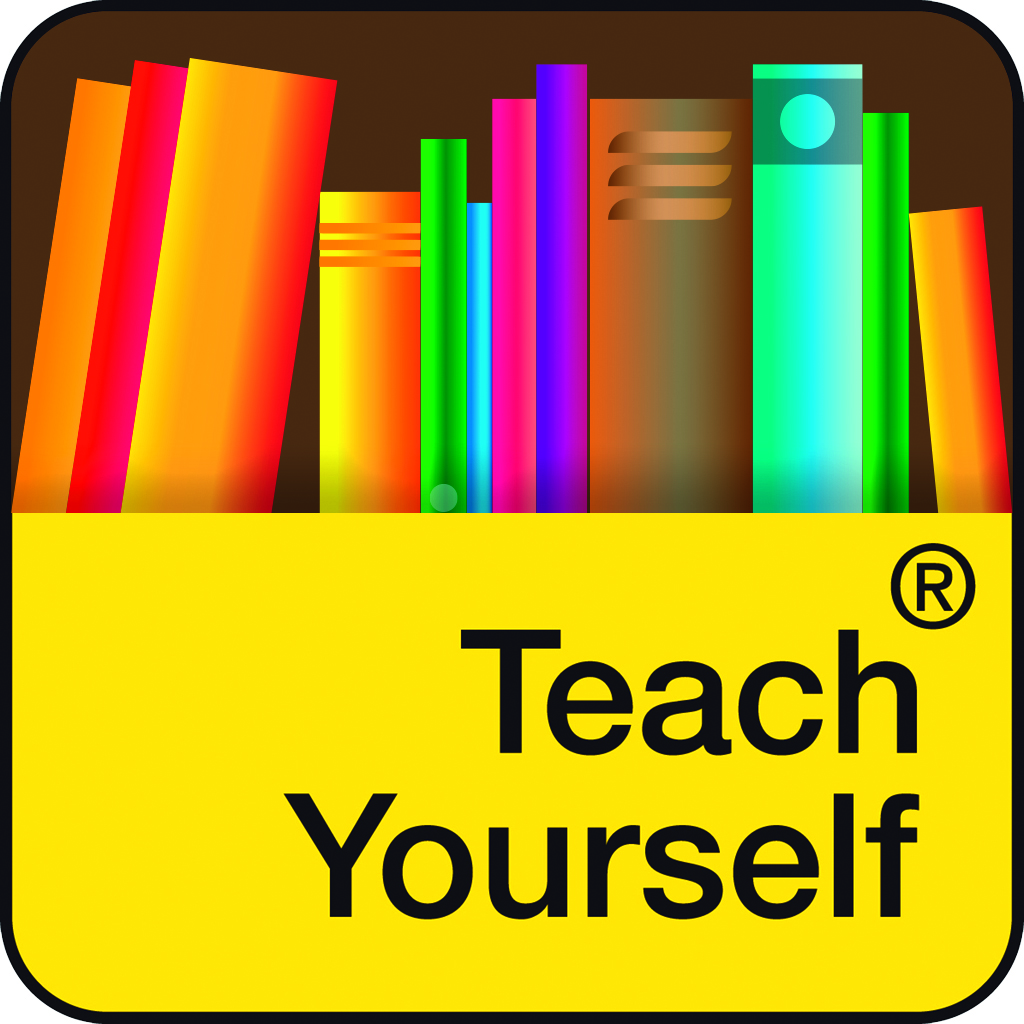
 @TYOpenRoad
@TYOpenRoad /TYOpenRoad
/TYOpenRoad /TYOpenRoad
/TYOpenRoad